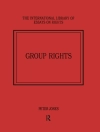‘Norwegian Government’ offers a detailed exploration of one of Europe’s most successful democratic systems, tracing Norway’s remarkable journey from an absolute monarchy to a thriving parliamentary democracy. The book masterfully examines how this Nordic nation has created a balanced approach to governance, combining democratic principles with robust social welfare programs and prudent resource management, all while maintaining its constitutional monarchy framework.
At its core, the book reveals how Norway’s unique governmental success stems from three fundamental pillars: its carefully crafted democratic institutions dating back to the 1814 constitution, the development of its comprehensive welfare state model, and its innovative approach to natural resource management, including the sovereign wealth fund. Through meticulous analysis of historical records and contemporary data, readers gain insight into how Norway has maintained one of the world’s highest living standards while fostering remarkable social trust and stability.
The narrative progresses logically through three main sections, examining constitutional frameworks, welfare state policies, and economic governance. What makes this work particularly valuable is its practical approach to complex topics, offering readers concrete examples of how Norway’s political institutions have shaped its social and economic outcomes. Whether examining parliamentary processes or resource management strategies, the book provides crucial lessons for both established democracies and developing nations, making it an essential resource for political scientists, policymakers, and students of comparative governance.












